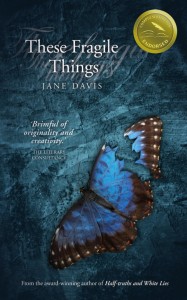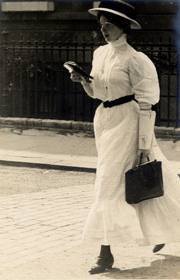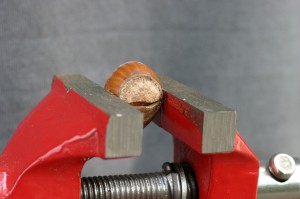Who says that librarians are scary?
A myth-busting exercise at Redhill Library
Having previously failed to convince Surrey libraries to stock my self-published titles, I was delighted to be invited to Redhill to talk to a packed room of librarians and key influencers. But, whilst my intention was to bust a few myths, I was also interested to learn about the obstacles as they see them. If the publishing industry has been subject to rapid change, so too has the library service, with funding cuts, redundancies and closures. It was clear to me that I needed to present a strong case why indie authors deserve our share of limited shelf space.
It is estimated that by the year 2020 (which is really not so very far off), 70% of books will be self-published. Exclude indie titles and you will only be offering readers access to 30% of available publications. Make the assumption that the 70% will be made up of have-a-go authors who didn’t quite make the grade, and you will be denying them access not only to innovative and exciting fiction, but quite possibly to some of their favourite authors.
When I describe my journey from Daily Mail Award Winner to self-published author, I explain that I resisted self-publishing for four years because I believed myth 1: that self-publishing is for amateurs, a myth deliberately perpetuated by service providers who take advantage of those wanting to get published, despite growing evidence to the contrary.
By 2012, I was in the unenviable position of touting three novels around the market. I had begun to feel like the lady character in Michael Chabon’s Wonder Boys who attends the same writing conference year after year with a slightly different version of the same novel, tweaked to the whims of yet another agent. A novel which continues to be rejected, albeit for slightly different reasons.
In November 2012, I attended the Writers’ & Artists’ Self-Publishing in a Digital Age conference and it was a revelation! There, I rubbed shoulders with established authors who had been dropped by their publishers after their latest release didn’t sell quite so well, ghost writers whose books had sold millions of copies, authors who had walked away from traditional deals because they didn’t like the way their books were being marketed, authors whose work crossed genres and hybrid authors.
Shifting Territory
What the publishing industry no longer does is offer authors an apprenticeship while they learn their craft and build readership. Val McDermid, who has sold 10 million books and whose novels have been televised as Blood on the Wire, said at the opening of the new Foyles, “If I published my first three novels now, I wouldn’t have a career because no-one would publish my fourth novel based on the sales of my first three.”

And this shift in attitude is not only found in the publishing world. Jennifer Saunders tells in her book ‘Bonkers’ that it is the same with television. If a comedy pilot episode doesn’t work there are no second chances. She says that if French and Saunders were starting out today, we would never hear of them.
This year I attended the London Book Fair for the first time and the message was that the difference between traditional and self publishing is now a blurred line. The advantages of self-publishing are too great to ignore.
Technology
- The ease of self-publishing – this is arguably also its most prominent disadvantage. The cardinal sin is publishing too soon. There should be a flashing red button that says, Have you used a groups of beta readers, a professional copy-editor, proofreaders, a professional cover designer? Are you sure that your novel is the very best it can be? Are you sure you’re sure?
- The low-cost start-up costs
- Print on Demand – by far and away the most significant development.
However, poor first impressions are hard to combat. Almost all of the attendees had read a self-published book and that experience had helped perpetuate the myth that self-published books = low quality.
I prefer to let the writing speak for itself and so I read from my novel, These Fragile Things. Which went down well.

Click here to buy
Myth: Literary agents serve as a quality filter
After poor quality of submissions, market conditions are cited as the main reason for the rejection of manuscripts. I am not without sympathy. With agents working on percentages of author advances, advances being considerable lower than they used to be, and the same amount of work to be done, why would an agent champion a strange and stubborn book that doesn’t fit neatly into a genre?
Risk Adverse Market

Become an evangelist for something truly ground-breaking, and it may be hugely difficult to sell. My editor at Transworld rejected The Kite Runner. Not because she didn’t love it, but because she didn’t think that people in the UK would be interested in a story set in Afghanistan. My dog-eared copy says that over 8 million readers have proved her wrong.
Eimear McBride, whose novel The Girls is a Half-formed Thing won the Bailey’s prize spent 9 years trying to find a publisher. McBride said: “There is a contract between publisher and reader that needs to be honoured and a reader must not be underestimated.”
This begs the question: are agents and publishers really in tune with what readers want? The fact that several publishing houses invited open submissions this summer may reflect growing concern that the writing publishers are hoping to see isn’t getting past the gatekeepers. On the flip-side, the fact that literary agents are entering the self-publishing arena suggests that they are struggling to place books with publishers.
The system is broken.
The librarians were clearly nervous at the thought that the quality filter might be removed.
When hunting down quality self-published titles, I recommend looking for evidence of accreditation such as http://www.bragmedallion.com or http://awesomeindies.net/. I used a similar service from Compulsion Reads, but, unfortunately they went bust, so I am starting again from scratch. It’s a slow process and standards are reassuringly high. There are also some excellent book recommendation sites. http://ascribeme.com is an example of a new site. To qualify, Authors need to evidence that they have reviews from professionals and checks are made.
Myth: Authors are well-paid
I know it’s vulgar, but I did talk about money (a) because the librarians wanted to know about the costs involved in self-publishing and were unaware how low the profit margins are for those authors who have invested in paid services, and (b) because they only had a very vague idea of author earnings in general.
When Adele Parkes was first published she was given the choice of being marketed as literary fiction or commercial fiction. In answer to the question, what’s the difference? she was told that literary fiction generally sells 7,000 copies while commercial fiction generally sells 70,000. But that was 10 years ago.
It is hard to keep apace with industry developments. The librarians had no idea how much advances have reduced by in the past five years. Something in the region of 75%. But it is reported that 90% of books do not earn out their advance, suggesting that they were artificially high – although I would ask the question, ‘over what period of time?’
Offering advice to authors, Kristine Kathryn Rusch says, “Traditional publishers looks at the sales numbers from the moment the book is available for preorder to six months after publication. Whatever the book has sold in that six-to-nine month period is pretty much what the book is going to sell. It took you five years to sell the book into traditional publishing and get that book on the shelves. That book will have less than a year to prove itself or go out of print.”
Statistics suggest that only 5% books sell over 1000 copies. I spend over £1500 producing a self-published book. I don’t break even until I have hand-sold over 1000 books at the full RRP. Even after the release of four self-published novels, with evidence of cross-selling, I have yet to break even.

© Robert Faric | Dreamstime Stock Photos
Writing and selling books is not how I earn a crust. I wanted to make a strong case that authors should be paid when they are asked to share their knowledge and experiences. Though a bottle of wine may help to drown my sorrows when I receive my bank statement, it is little practical use otherwise. All too often, the impression remains that, when an author comes to give a talk, ‘their publisher’ pays them. Either that, or that a very few book sales will cover the author’s expenses.
Similarly, the perception of the public is that, when they pay to attend a book talk, the author receives the majority of the ticket price. This is not the case. The majority of the time, the author will not have been paid for their time. Quite often, they won’t have been paid for their expenses.
Myth: If you are traditionally published, your publisher will take care of the marketing
When Pulitzer prizewinning playwright, David Mamet recently decided to self-publish a novella and two short stories, he reasoned, “Publishing is like Hollywood. No one ever does the marketing they promise.” (Far from excluding his literary agent, he is using a new self-publishing service provided by his literary agent.)
Echoing this, the traditionally published authors I spoke to at the London Author Fair had received absolutely no marketing support for their recent releases, and the cost of all their promotional work has come out of their own pockets. Several mid-list authors told me that they will consider self-publishing when their current two-book deals are fulfilled.
The public perception of what the publisher pays for is outdated. It is a very real concern that libraries whose policies do not allow them to stock self-published titles may not enable them to stock popular authors in the future.
Positive advantages of Self-publishing
The Society of Authors Chief Executive, Nicola Solomon, has said that traditional publisher’s terms are no longer fair or sustainable. Indeed, it seems that traditionally published authors are now demanding the same terms as self-published authors.
In addition to retaining ownership of their material and 70% royalty payments for e-books, I mentioned many of the other positive advantages of self-publishing: creative control; lack of censorship; the choice of how to present your work; the ability to react in a timely manner to market changes.
Despite all of their reservations, this is one area where the librarians didn’t need convincing. One of the services they now provide is helping authors to self publish e-books. Did you know that the library service has its own self-publishing platform, Overdrive? (I didn’t.) And US Libraries have entered into a deal with Smashwords.
‘Your talk convinced me that the answer should be “yes”.’
With a resounding vote in favour of stocking self-published titles, I wanted to hear about the obstacles that the librarians face. How can we help them to help us?
It is very clear that libraries lack the capacity to deal with hundreds of individual self-publishers. They simply cannot afford to open the flood-gates. It has become easier to say ‘no’ to all of them (donations included), so that has been their policy. (I am aware that the situation may vary from county to county, indeed, some libraries have a policy of supporting local authors.)
Those present were all in agreement that a single catalogue of self-published titles needs to be produced. And within such a catalogue, they would require some form of quality assurance. This would clearly be a mammoth – and not to mention costly – undertaking.
UK Libraries order their stock via Askews and Holts Library Services. They have no choice about this. Therefore, self-published authors need to get themselves on the Askews database. They are now investigating how this can be done.
Libraries are keen to stock more e-books. They are exploring whether their self-publishing platform ‘Overdrive’ can be made available to indie authors, or whether, in the UK, a deal with Smashwords may be the way forwards.
Because of the requirement for libraries to add value to the community, they have been tasked with helping writers self-publish. I have been invited to give a ‘how to’ seminar. Your local library may well be looking for someone willing to share their experiences. Funding is available, so speakers will be paid.
Summary
Far from being scary, the librarians were the most receptive audience I have had the pleasure of talking to for a long time. People with a genuine love of books. People who want to keep up to speed with changes but who lack the resources. This is where indie authors can step in. What’s more, whilst I had thought that book sales would be low, given that the attendees were people who are surrounded by books all day. I couldn’t have been more wrong. They were incredibly supportive.




